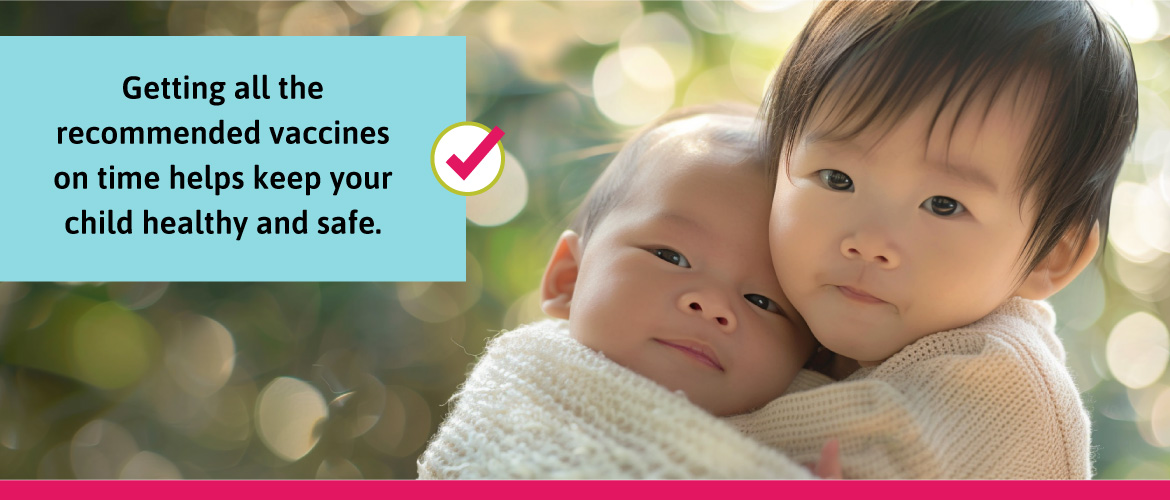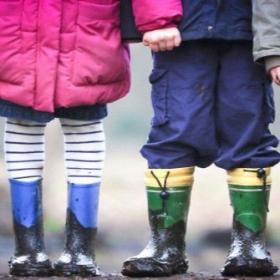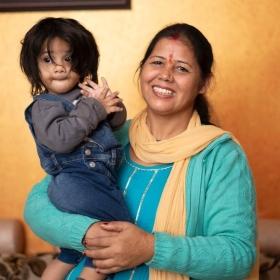Date last reviewed:
Wednesday, Jan 08, 2025

Following BC’s recommended immunization schedule gives your child the best protection against 14 potentially serious diseases. The schedule is safe, effective, and based on science.
Here are 5 reasons why sticking to the schedule and vaccinating on time is important.
1. Protecting your child at the right time
The immunization schedule is carefully designed to protect your child early in life when they’re most vulnerable and before they may be exposed to serious diseases. For example, babies begin receiving the pertussis (whooping cough) vaccine at 2 months old because this disease can be very dangerous for them. The timing of each vaccine is based on how a child's immune system responds to the vaccine at certain ages and how likely a child is to be exposed to a disease and have complications. Doctors, public health professionals, and scientists carefully plan the schedule to ensure it’s safe and effective.
2. Every vaccine and dose matters
Each vaccine is carefully designed to protect your child from a specific disease. Some vaccines require multiple doses to build strong immunity or to boost protection that may decrease over time. Your child needs the flu shot every year because the virus changes and vaccines are updated accordingly. Every vaccine and dose on the immunization schedule is essential for the best protection.
3. Protecting others
When your child gets their vaccines on time, they are less likely to get and spread diseases. This not only protects your child but also helps keep others safe, including babies too young for vaccines and people who can't get vaccinated for medical reasons. Ensuring your child gets immunized on time helps keep your family, friends, and community safe.
4. Delaying, spacing out, or skipping vaccines is risky
Delaying, spacing out, or skipping vaccines leaves children at risk of getting serious diseases and complications. Spacing out vaccines also means more trips to the clinic and more discomfort for your child, which could contribute to a fear of needles. Sticking to the recommended immunization schedule helps protect your child on time when they need it.
5. Long-term protection
While your baby receives some temporary protection from antibodies passed through pregnancy and breastfeeding, this protection doesn’t last long. Vaccines provide long-term protection against diseases. To ensure your child stays protected over time, it's important to follow the recommended immunization schedule.



